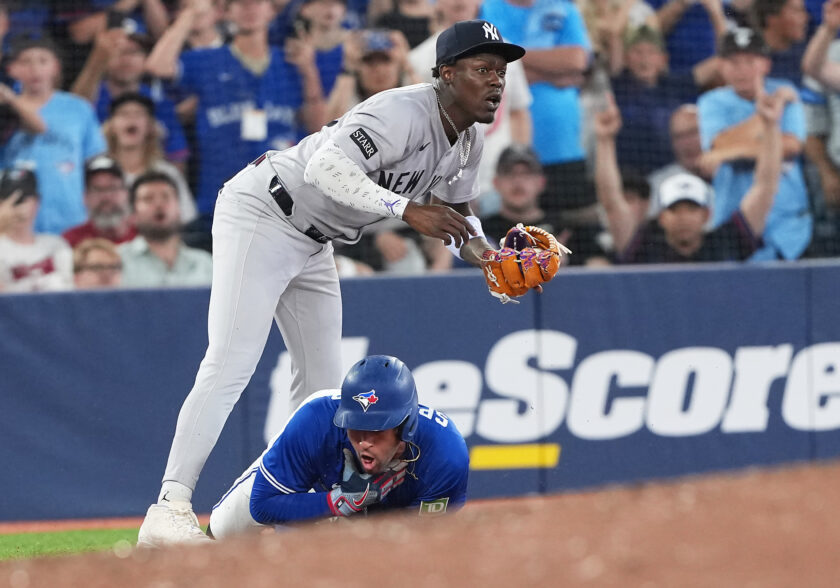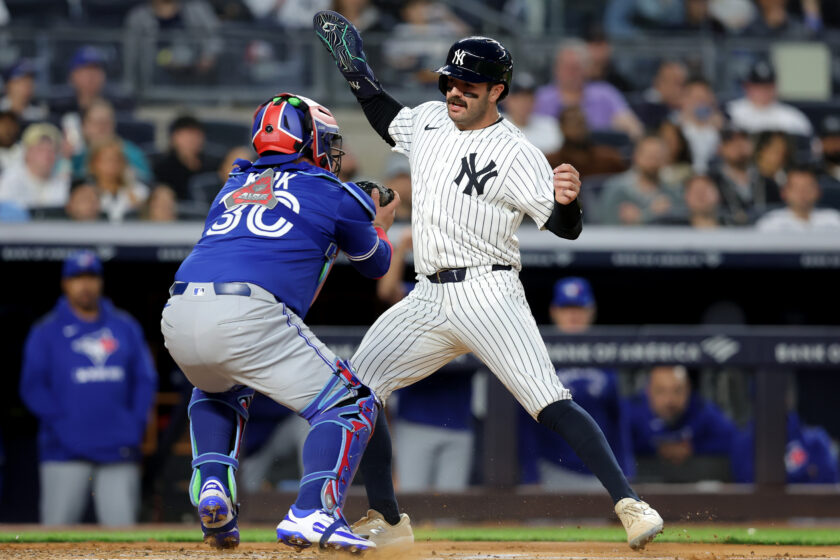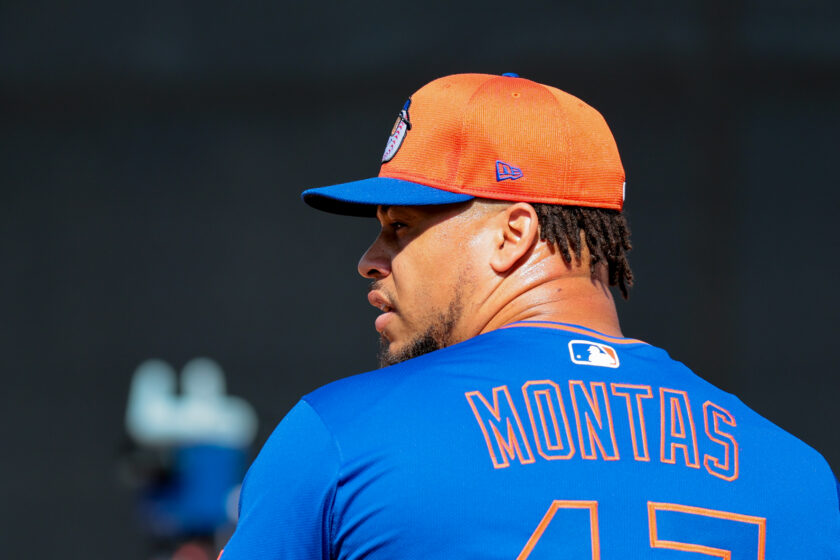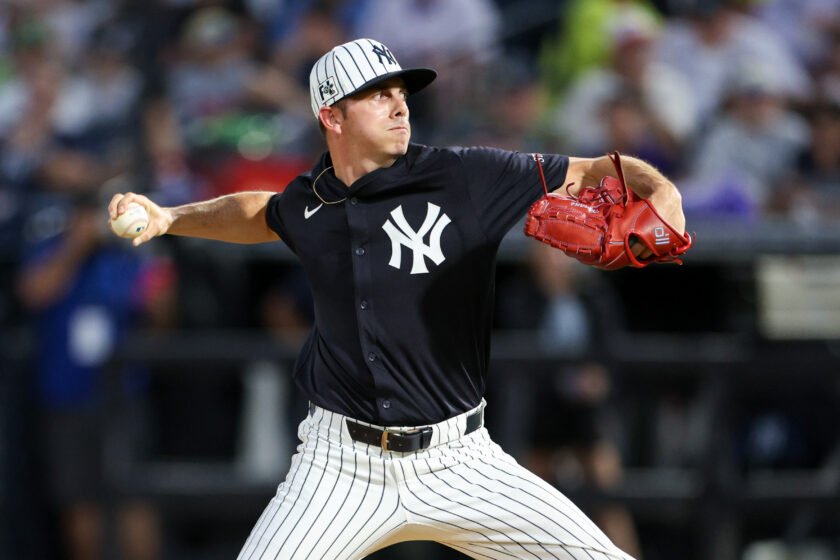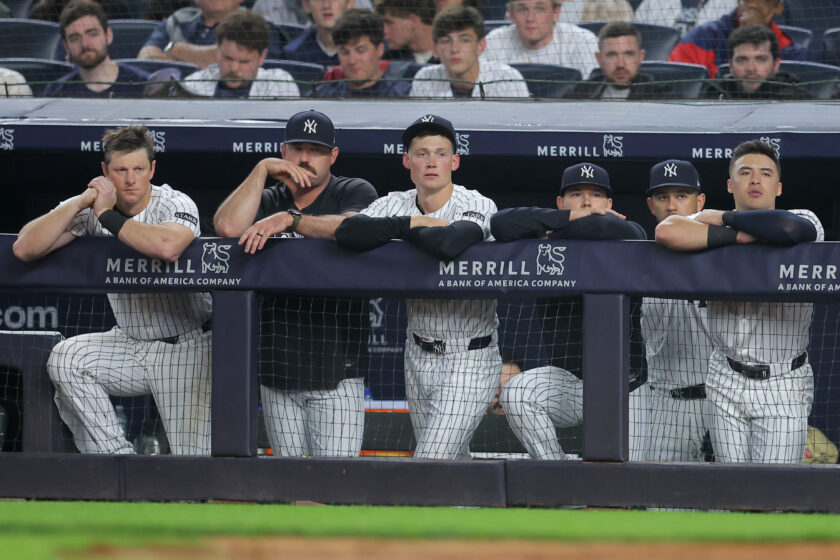Here’s a reason why MLB free agency is so slow compared to NFL, NBA
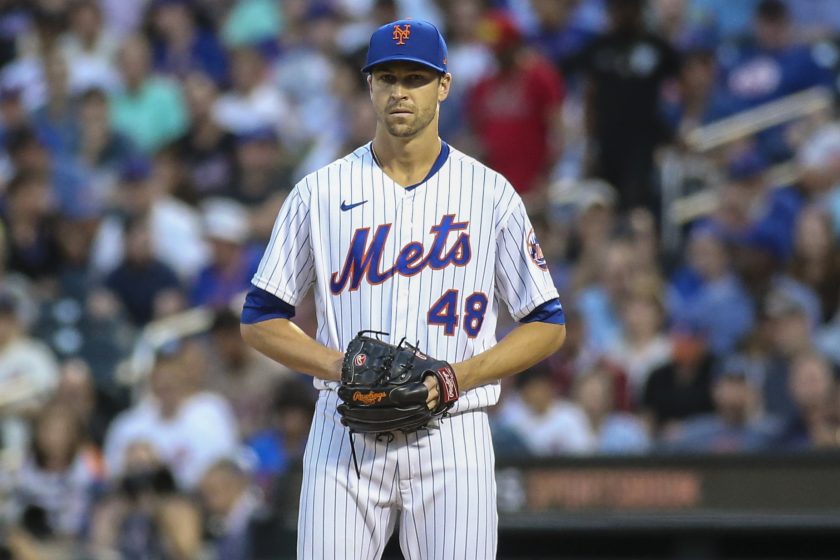
It’s been nearly a month since the Houston Astros beat the Philadelphia Phillies in the World Series. Five days after Game 6 was in the books, MLB free agency officially opened up. The market is loaded with elite players, like Aaron Judge, Justin Verlander, Jacob deGrom, and a whole bunch of shortstops.
Some moves have happened. But outside of Edwin Diaz re-signing with the Mets for five years and $102 million, the Hot Stove has mostly remained ice cold. That’ll probably continue to happen until the Winter Meetings begin on Sunday in San Diego.
The Winter Meetings is one of the most enjoyable times for MLB fans. Not only are rumors flying left and right, but deals actually get done (or, at least agreed upon). The Mets and Yankees are both hanging out at the top of the free-agent market for the game’s best available players. However, the waiting game is torturous and can get quite boring.
Last winter’s MLB lockout was a huge bummer. But it also prompted a flurry of activity from clubs leading up to the shutdown. That was fun and felt more like the chaos that happens when NFL and NBA free agency opens up each year.
But now, we’re back to the same old bologna this offseason for MLB. Why? ESPN’s Jeff Passan provided some insight on a recent episode of The Ringer’s “New York, New York” podcast. Here’s what he had to say:
We need to look at the differences between the leagues because they inform why Major League Baseball acts as it does. The NFL, the NBA, the NHL are all salary-cap leagues. So generally speaking, you have a decent sense of parameters for what a contract is going to look like. In the NBA, you know what a max deal is, and in the NFL, each position, because of the franchise tag has a general value that’s going to go up, maybe a million, $2 million… 3-4 if you’re taking a big jump at a position and a market moves.
In baseball, there is no salary cap. There is no limit on how many years you can give out or the dollars. So, it turns into a game of chicken. Agents are standing there saying, “We feel like this player is worth this much.” Clubs are standing there saying, “We feel like that player is worth this much.”
Generally speaking, they find some middle ground and figure it out, but they don’t do it with any immediacy. They don’t do it with any urgency because we’ve seen guys like Prince Fielder get $200 million in February and we’ve seen Manny Machado and Bryce Harper wait around for those $300 million contracts that could’ve been there in November.
The frustrating part to me is we saw it last year when the lockout was imminent. Everybody in baseball understood that in the beginning of December, there was going to be a transaction freeze. And accordingly, we got the most interesting 96 or so hours in baseball free agency we’ve seen in a really, really long time.
Passan went on to say this about putting some kind of deadline on contracts getting done:
You can make the argument that putting a signing date in place…”By this point, multi-year contracts have to be signed” might be a good thing. But, then it goes against all the principles of the free market. This idea that, if a guy is on the cusp, maybe he’s a one-year guy, maybe he’s a two-year guy, well, they’re just going to wait it out at that point. So, the middle class is who gets harmed most in a scenario like that.
Is any of this Earth-shattering news? No, not at all. It doesn’t make things any less frustrating from a fan’s perspective, though. It’s nice to see meaningful baseball news happen throughout December, January, and February while waiting for Spring Training. But getting virtually no major player transactions for a full month after an exciting postseason is brutal.
Knowing how MLB operates, it will probably stay like this for a while. It may never change. We can at least hope that the November 2021 free-agent frenzy makes people in the right places question why there can’t be more of that moving forward.
Matt Musico can be reached at matt.musico@xlmedia.com and you can follow him on Twitter: @mmusico8.
Matt Musico is an editor for ESNY. He’s been writing about baseball and the Mets for the past decade. His work has been featured on numberFire, MetsMerized Online, Bleacher Report, and Yahoo! Sports.

